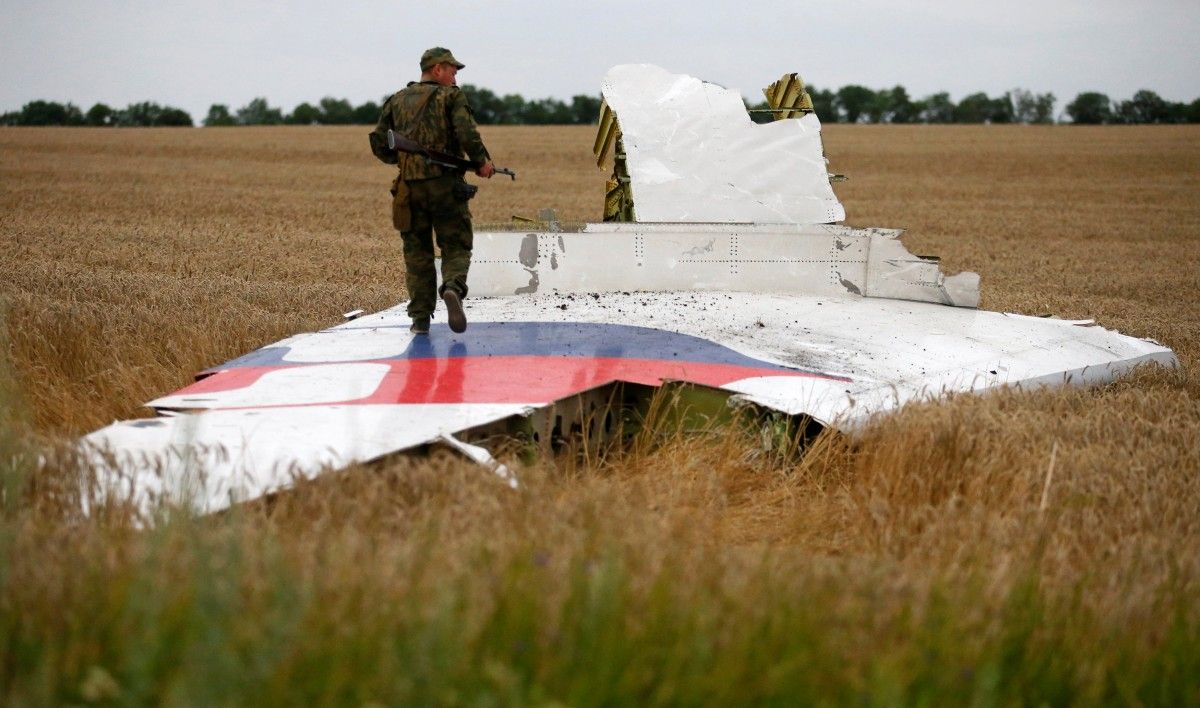
Russia, and specifically the Russian military intelligence agency GRU, used multiple tactics to influence and hinder the investigation into the downing of flight MH17 in eastern Ukraine, the Volkskrant reports based on sources and its own research just days before the trial against the first four suspects in this case is set to start. The Dutch investigators are convinced that these multiple attempts were unsuccessful, they said to the newspaper.
Immediately after flight MH17 was shot down in eastern Ukraine on July 17, 2014, the Dutch Safety Board (OVV) launched an investigation, part of which was establishing contact with its Russian counterpart, the Russian Interstate Aviation Committee (MAK), NLTimes reports.
A few days later, it turned out that MAK had been replaced by a five-member state committee, with a team leader who previously worked for a Kremlin security service. According to the Volkskrant, this was likely the Russian government's first step to get a grip on the investigation.
Some weeks after the disaster, Malaysian pilots visited the Netherlands to translate the conversation that their colleagues who piloted MH17 had with each other on the disastrous flight. In that same period, two members of the GRU were in the Netherlands, the newspaper wrote. These were members of a notorious unit that was later allegedly involved in an attempt to poison a Bulgarian arms dealer in 2015, a failed coup in Montenegro in 2016, and the poisoning of former Russian spy Sergei Skripal in Great Britain in 2018. One of the two who were in the Netherlands, is the leader of this unit. What they were doing in the Netherlands is not clear. "But a relationship with MH17 is obvious," one of the newspaper's sources said.
Six months later, it turned out that two former GRU members were part of the Russian state committee that was cooperating with the OVV in the MH17 investigation, according to the newspaper. One of them is a general in the Russian army. Shortly after the disaster, this general said in an interview that it was unlikely that the plane was shot down by a Russian BUK missile, as the OVV later determined was the case.
The Dutch military intelligence service MIVD kept an eye on these two former GRU members when they were in the Netherlands for a consultation with the investigative teams from all the countries involved in the MH17 investigation. After every meeting, they called a telephone number in the Kremlin. According to the Volkskrant, they mainly discussed how to "edit" the composition of the Malaysian investigation team. Last year, the then Malaysian Prime Minister raised doubts about the Joint Investigation Team's findings and said that there was no hard evidence that Russia was responsible for the MH17 disaster.
When members of the OVV and the Dutch police were in the Ukraine for investigation, they were approached remarkably often by young women, who also spoke to them in Dutch, according to the newspaper. Their hotel rooms were also cleaned suspiciously often – sometimes three times a day. And when returning to the Netherlands, malware was found on the private telephones of investigators.
In the summer of 2015, suspicious persons were spotted around the OVV office in The Hague. A bag with interview reports was stolen from a car owned by an OVV employee, while in 2016 flash drives were stolen from a Defense photographer in what appeared to be a burglary. The OVV reported also at least one attempt to hack the service, traced to hacker group Fancy Bear, which is linked to the GRU. And according to the Volkskrant, GRU members who tried to break into the computer network of the OPCW office in The Hague in 2018, were first in Rotterdam near the National Public Prosecution Office – where the criminal investigation into MH17 is taking place.
After the GRU members were caught targeting the OPCW office, the MIVD seized their equipment. On one laptop, the Dutch service found information showing that the team had been in Malaysia in 2017 to set up an operation against the Malaysian investigation team, the newspaper wrote.
The Dutch researchers are convinced that these attempts by Russia to influence and sabotage the investigation were not successful, according to the Volkskrant. The attempts did make the investigation more complicated – because of distrust – but did not influence the conclusions, investigators said to the newspaper.

